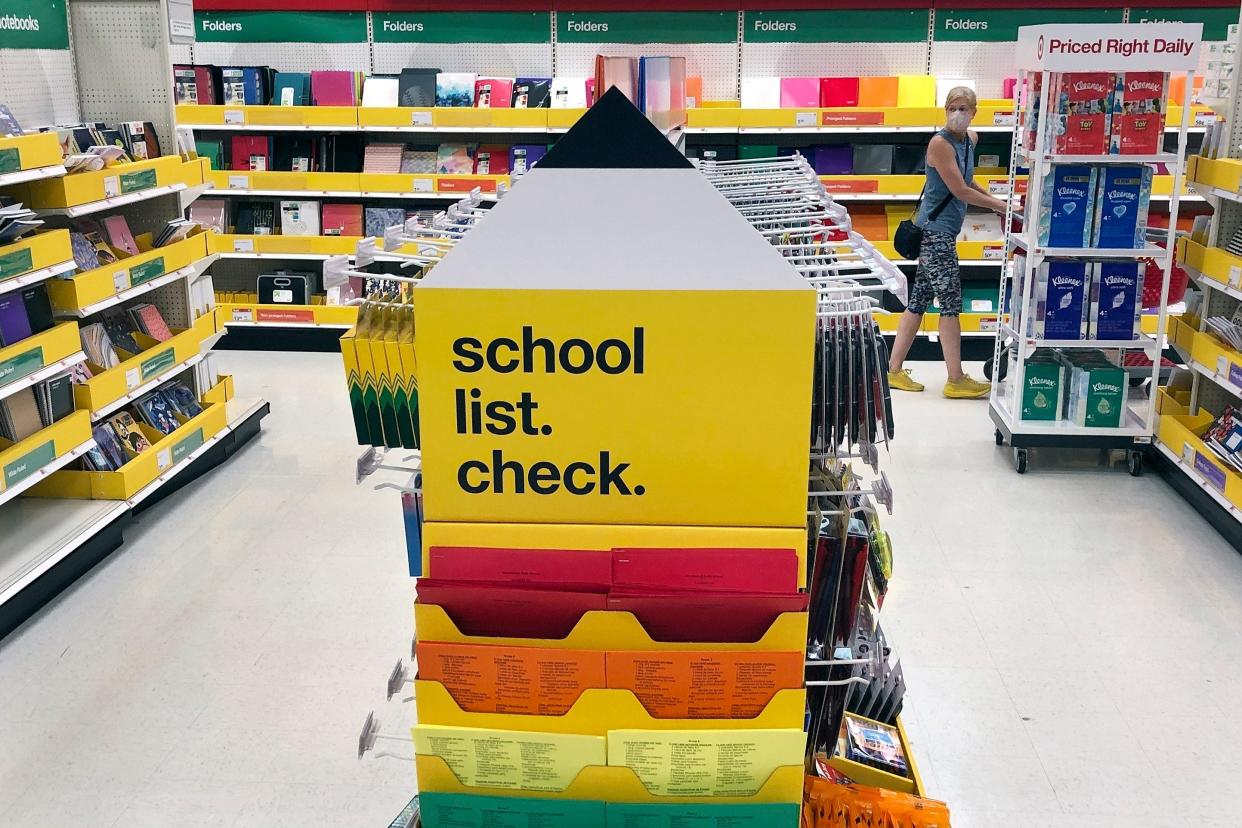Here are 7 back-to-school shopping tips you need to know this year

Seems too soon but, school will be starting for thousands of students. While signaling the end of summer it also signals the start of back-to-school scams. Recently, in a news release the Better Business Bureau warned that, “Parents should be on the lookout for back-to-school scams this year because of inflation and product shortages.”
Parents are certainly going to turn to online shopping, and con artists will come up with new angles to take advantage of the mad rush for high-demand products. Scammers will target shoppers with phony deals, enticing ads, and attractive, but fake, websites.
Using figures from National Retail Federation as a gauge, shoppers are expected to spend an average of $864 per family. Spending for families with college-age students is pegged at $1,199. Overall family spending will top $37 billion dollars while college students’ families will spend more than $70 billion. For scammers those numbers are too big to ignore.
The cons the crooks are running are generally plays on the same schemes they use throughout the year. According to McAfee a computer security software company parents need to be concerned about:
Identity theft – Because school aged children have clean Social Security numbers and credit reports that are rarely checked. Be cautious when asked for identity information to register for sports leagues and after school events.
Phony tuition fees – “Save your spot” emails are sent requesting a tuition fee. These emails can cause confusion for parents who may have already paid tuition but without questioning will make a second payment.
Financial aid fraud – Con artist advertise a service – for a fee – to secure financial aid. When the application is completed, you can lose both your money and personal and financial information.
Student loan forgiveness – Ads found on social media and from emails offering to assist in getting student loans forgiven. The scammers charge exorbitant fees to renegotiate the debt.
Phony student taxes – A twist on the IRS scam, text messages, emails and phone calls that claim to be from the IRS with a demand for immediate payment of the “Federal Student Tax” or risk jail time.
Millions will be spent on sneakers, backpacks, and technology equipment the BBB has advice to help get the best deals, stay on budget and out of trouble:
Research big ticket items – Whether your children are learning in-person at school or online from home, technology has come to the forefront over the past two years. When buying new equipment, check with your child's school to learn about any technical requirements. Before purchasing an expensive laptop, tablet, or other computer accessories, research the brands, warranty, customer reviews, and prices of various stores for the best deal.
Finish your shopping early – Supply shortages are possible, especially as many consumers begin shopping for the same products. Shop now to avoid paying higher prices or falling victim to a scam.
Shop with familiar retailers – Laptops, tablets, or other tech accessories can be a significant investment. Shop with businesses you know and trust to ensure you’re getting a quality product and good customer service.
Don’t buy from impostors – Fraudsters may use the name, logo, and other characteristics of brands you trust. Closely examine the website to verify that they are who they say they are.
Approach low prices with caution – Low prices and short-term sales could be a sign you’ve encountered a scam. If the price seems too good to be true, it probably is.
When shopping online, be wary of "click bait" ads that feature items that imply that you may want or need them based on your search history. Scammers could be trying to drive you to a different website to potentially steal personal information.
Ask for a discount – Many stores and software companies offer discounts. Some are available to students with either a ".edu" email address or a student identification card.
Deal with secure websites – These will begin with “https” and have a “lock” symbol on the address bar.
Friday marked the beginning of the state tax rollback, where shoppers in Illinois will be able to purchase school supplies for reduced costs through Aug. 14.
Through the tax holiday, retailers will reduce the state sales tax to almost 1 percent, according to the Illinois Department of Revenue. The typical state sales tax is 6.25%, but it will be dropped to 1.25% for these 10 days.
Dennis Horton is director of the Rockford Regional Office of the Better Business Bureau, which serves Winnebago, Boone and Stephenson counties among others in northern Illinois.
This article originally appeared on Rockford Register Star: Here are 7 back-to-school shopping tips you need to know

